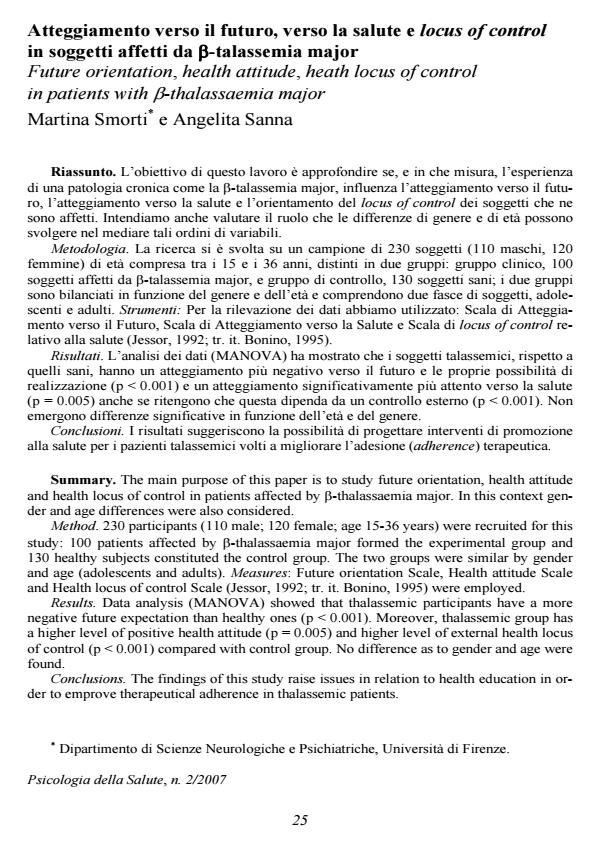Atteggiamento verso il futuro, verso la salute e locus of control in soggetti affetti da ß-talassemia major
Journal title PSICOLOGIA DELLA SALUTE
Author/s Martina Smorti, Angelita Sanna
Publishing Year 2008 Issue 2007/2 Language Italian
Pages 15 P. 25-39 File size 262 KB
DOI
DOI is like a bar code for intellectual property: to have more infomation
click here
Below, you can see the article first page
If you want to buy this article in PDF format, you can do it, following the instructions to buy download credits

FrancoAngeli is member of Publishers International Linking Association, Inc (PILA), a not-for-profit association which run the CrossRef service enabling links to and from online scholarly content.
The main purpose of this paper is to study future orientation, health attitude and health locus of control in patients affected by ß-thalassaemia major. In this context gender and age differences were also considered. Method. 230 participants (110 male; 120 female; age 15-36 years) were recruited for this study: 100 patients affected by ß-thalassaemia major formed the experimental group and 130 healthy subjects constituted the control group. The two groups were similar by gender and age (adolescents and adults). Measures: Future orientation Scale, Health attitude Scale and Health locus of control Scale (Jessor, 1992; tr. it. Bonino, 1995) were employed. Results. Data analysis (MANOVA) showed that thalassemic participants have a more negative future expectation than healthy ones (p < 0.001). Moreover, thalassemic group has a higher level of positive health attitude (p = 0.005) and higher level of external health locus of control (p < 0.001) compared with control group. No difference as to gender and age were found. Conclusions. The findings of this study raise issues in relation to health education in order to emprove therapeutical adherence in thalassemic patients.
Martina Smorti, Angelita Sanna, Atteggiamento verso il futuro, verso la salute e locus of control in soggetti affetti da ß-talassemia major in "PSICOLOGIA DELLA SALUTE" 2/2007, pp 25-39, DOI: